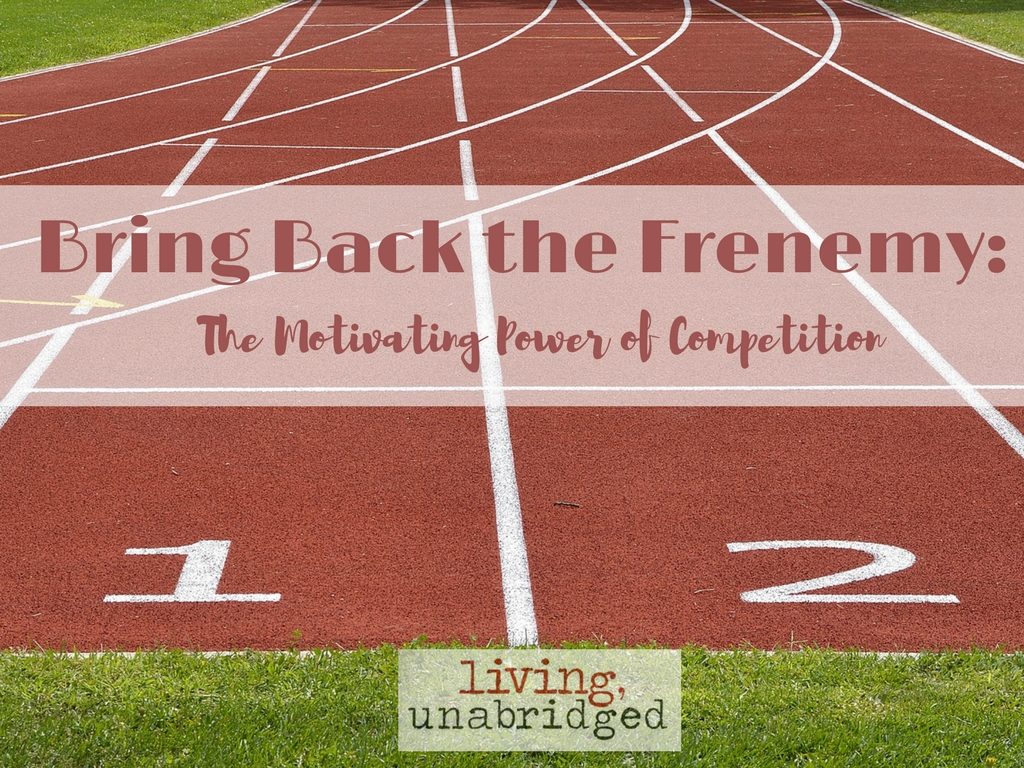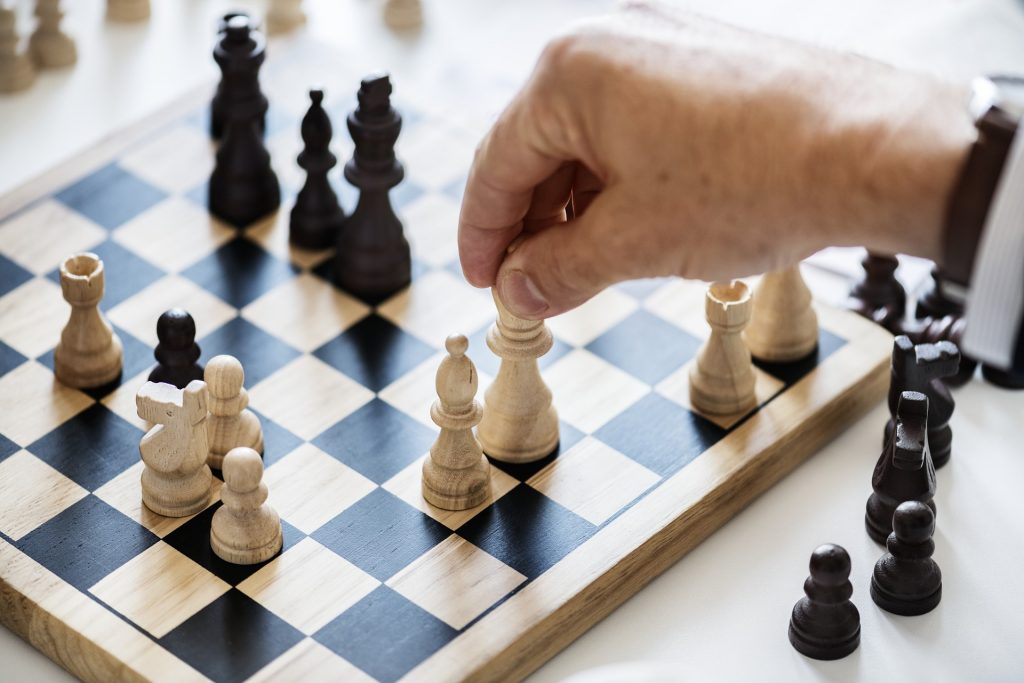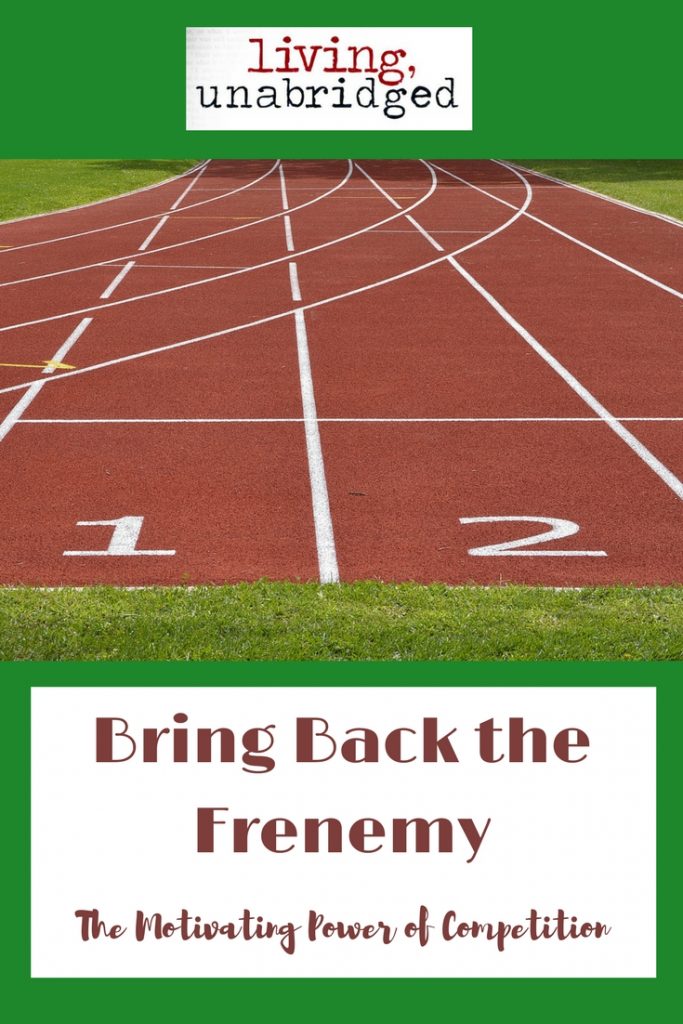As a child I took piano lessons. From somewhere around Kindergarten until I graduated high school, Tuesdays were piano lesson days.
Now, it may be that I have some natural affinity for music. After all, I come from a family who sings at every family reunion. (Bring your guitars!)
There's also the reality that taking a half-hour piano lesson every Tuesday (except summers) for your entire childhood will most likely produce an adequate musician.
But then there's a sometimes overlooked "encourager" when pursuing a skill: the frenemy.

My definition of a frenemy is:
someone with whom you're somewhat friendly, or at least not openly antagonistic, but you're not close confidants and, if anything, you're competitive with each other for attention, accolades, or whatever
I had at least one person like this while I was growing up. Sometimes that competitive nature spurred me to practice when other motivations didn't.
I'm not, generally speaking, a super-competitive person, but it does come out every now and again. That's what spurred me to memorize the longest piano piece my teacher could find when I was in high school: I wanted to be the last pianist in the annual recital. (For the record: mission accomplished!)
Sometimes opportunities are limited to the best. And if you want to be the best, well, that requires more work than maybe you might have chosen to put in otherwise.
In teaching my own children the piano, consistency has been a problem. (On my part and theirs.)
But I think another problem might be that they don't have any competition.
Consequences of a Lack of Competition
We attend a small church. So any contribution my kids make (working with kids, singing, etc.) is highly praised. (And honestly, possibly more than it should be. Expectations are sadly low.)
Anyway, I hear you protesting now. "We should learn to do things for higher motivations than that!"
And I agree.
But I think this concept carries over into adult life in some ways.
Here's another example from my own life:
The Competing Vision
There's a method of homeschooling I don't follow. It has its founder / guru (wise person who wrote things long ago) and its proponents (people of varying degrees of wisdom, now pursuing the founder's vision also to varying degrees)
Now, some of these people I consider friends. (Definitely NOT frenemies!)
But the method itself I consider a frenemy. (I seriously have a love / hate reaction any time I read about it.)
But I think that's a good thing. Because then I'm forced to evaluate what I think and why I think it.

A Frenemy Requires Evaluation
I consider other evidence. Logic and emotion are both involved in the consideration.
Which improves my mind and my life even though I'm never going to agree with certain tenets of the other view.
Maybe our world could use more of that type of thing?
(I also heard John Stonestreet this week quote someone else - I didn't catch who - who said, "Be gentle with people. Be ruthless with ideas." That struck me as a good way to think about conflict.)

Why I'm Thinking About This
The actual catalyst for considering this concept again was the recent Winter Olympics. So many of the top medal winners have stories of training with their nearest competitors. They push each other on.
That motivation can sometimes be the kick in the pants you need when the going is harder than you'd like to be.
Our culture right now is double-minded on the concept of competition. On one hand, most kids sporting events are "Everyone wins a trophy" type of thing. Scores aren't kept. Cooperation is prized. (And I think some of that is a good thing.)
On the other hand, we still prize high achievers. Olympians, Super Bowl Winners, even the kid who wins the Scripps National Spelling Bee is a celebrity for a few seconds each year.
You don't excel at something by accident.
Sometimes I'll read a book and think, "I CANNOT believe someone actually published that." Or "Why in the world is anyone listening to this person on this topic?"
Which will remind me of the books I haven't written and the concepts I haven't quite developed yet. (Which is humbling.)
Once again, this is not the most noble motivation. Nor is it to be pursued in all cases, of course. I don't really want to push my kids to Win at All Cost. We've seen the result of that in the U.S. gymnastics program and it has left devastation in its wake.
And I don't want to treat everyone I meet as competition for limited resources. The world is vast and so are the opportunities in it.
But a challenge can be a good thing. And "iron sharpens iron."
Which is why I say:
Bring back frenemies! (Or, at the very least, people who push us to do better. That's just not as catchy.)








